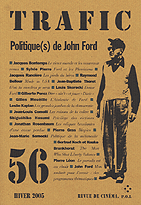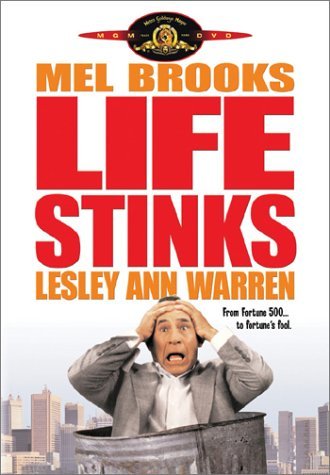This essay was comissioned by the French magazine Trafic — founded by the late Serge Daney shortly before his death, and still going strong today — where I’ve served for many years as one of the advisory editors. Their 50th issue, published in the summer of 2004, was devoted to various answers to the Bazinian question, “What is Cinema?” This is also the title essay in my 2010 collection, published by University of Chicago Press. — J.R.

Goodbye Cinema, Hello Cinephilia
by Jonathan Rosenbaum
What is cinema?
Before one can even start to answer this question, it becomes necessary to acknowledge that one can’t formulate precisely the same definition of cinema for France and for other countries. And the reason why one can’t should be obvious: in France, an important part of this definition pertains to film as an art form—-a distinction that is generally perceived elsewhere only as a minority position, and sometimes even as an elitist one. But if, on the other hand, one were to ask the question, “What is cinephilia?”, it starts to become easier to come up with a definition that applies to everywhere. A seeming contradiction, it can perhaps be explained by saying that the “cinema” in “cinephilia” is not quite the same thing as “cinema” seen as a self-sufficient term, without reference to social forms. Read more

It’s been about 45 years since I last saw Pietro Germi’s Seduced and Abandoned (1964). I’m sure it already looked like a savage social satire when I was 21 or so, but one additional meaning it’s picked up in the interim is the devastating putdown it offers of The Godfather and its first sequel years before either one was made. (The second-best putdown—Coppola’s own The Godfather: Part III—would come much later.)
If memory serves, Germi’s earlier Divorce, Italian Style (1961) is funnier, largely because it’s less overflowing with bile than Seduced and Abandoned—and also no doubt because it has Mastroianni. But even so, I’m not at all surprised that Manny Farber would describe Divorce as an “unfunny farce”. What probably distinguishes Germi (1914-1974) most sharply from a Farber favorite like Preston Sturges (1898-1959) is the latter’s affection for even his dumbest and crassest characters, little of which Germi appears to permit himself. The hypocrisy of most of the small-town Sicilians in Seduced and Abandoned is too consistent and unvarying to allow for much indulgence, much less love or amusement. Even the title victim, played by Stefania Sandrelli, ultimately becomes a bit dehumanized by all the free-floating scorn, which eventually devolves into a kind of nightmare horror show, almost on the order of something like Rosemary’s Baby. Read more
I’ve been getting a lot of pleasure lately from the new Blu-Ray Mel Brooks box set, especially in catching up with the two Brooks features I hadn’t seen before, The Twelve Chairs (1970) and Silent Movie (1976). The only gaping absence for me in this deluxe collection isn’t so much The Producers (1968), his first feature, and certainly not his most recent and weakest, Dracula: Dead and Loving It (1995), but Life Stinks (1991), which in retrospect I may have underrated — and which Kino Lorber is bringing out this July. Which is largely why I’m resurrecting my mixed review of it. This originally appeared in the Chicago Reader’s August 2, 1991 issue. — J.R.


LIFE STINKS
** (Worth seeing)
Directed by Mel Brooks
Written by Brooks, Ron Clark, Rudy De Luca, and Steve Haberman
With Mel Brooks, Lesley Ann Warren, Jeffrey Tambor, Stuart Pankin, Howard Morris, and Rudy De Luca.
“Tragedy is if I cut my finger. . . . Comedy is if you walk into an open sewer and die.” —Mel Brooks
For a long time now Mel Brooks has been one of my guilty pleasures. It’s difficult to refute the protestations of friends and colleagues about the general feebleness of History of the World–Part I and Spaceballs — his previous two features as writer-director, and the only ones that appeared in the 80s — but there are moments in both films that I deeply treasure, not so much as evidence of a writer’s, director’s, or performer’s craft, but rather as moments that make me laugh hard and long and make me feel good afterward. Read more




